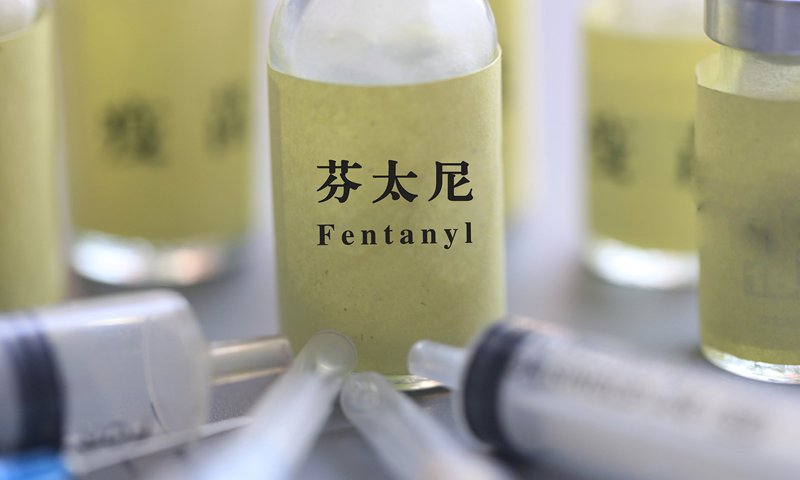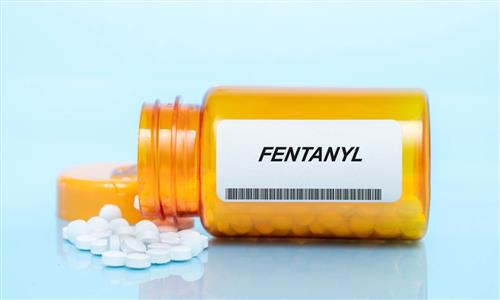China's narcotics control agency condemns US sanctions and smearing, publishes drug control achievements

Fentanyl Photo:VCG
China's narcotics control authorities expressed strong dissatisfaction and opposition with the US for its sanctions and smearing of Chinese companies and individuals over Chinese exports of chemicals and equipment to Mexico, and released data showing China's zero-tolerance and remarkable results in dealing with the drug problem.
At a press briefing on Wednesday, a spokesperson of the office of the China National Narcotics Control Commission (NNCC) said the US-claimed "fentanyl precursors," tablet press, and capsule filling machine are not subject to control according to international drug control conventions, and they are all common products.
According to the NNCC, China has always earnestly fulfilled its obligations under the UN convention, and has implemented an import and export licensing and international verification system for precursor chemicals. For enterprises applying for export of precursor chemicals, China requires them to submit a certificate of lawful use issued by the competent government department of the importer or a guarantee document of lawful use by the importer.
In recent years, China has suspended the export of precursor chemicals by tens of thousands of tons annually through import and export verification, effectively preventing precursor chemicals from flowing into illegal channels through international trade, according to the NNCC office.
Also on Wednesday, Wei Xiaojun, head of Narcotics Control Bureau (NCB) of China's Ministry of Public Security, detailed the achievements of China in combating drug crimes over the past decade.
A total of 1.07 million drug crimes were solved, 1.28 million criminal suspects were arrested, and 651.9 tons of drugs were seized between 2013 and 2022, according to Wei. Over the past 10 years, 6.79 million drug addicts have been seized nationwide, and there are currently 1.124 million drug users nationwide, down 56 percent from the peak.
In the first half of 2023, Chinese national immigration administration authorities solved 361 drug cases at ports and borders, arrested 528 suspects, and busted 31 transnational and cross-provincial drug gangs. A total of 4.74 tons of various drugs and 703.48 tons of drug-producing goods were seized in the first half of 2023, effectively curbing the infiltration of overseas drugs into China and the smuggling of drug-producing goods out of China.
The US side claims that the precursors for the processing of fentanyl in Mexico was sourced from China, but the chemicals and related equipment involved are not listed in accordance with international drug control conventions and Chinese and Mexican laws, said Yu Haibin, the deputy director of NNCC office.
"The Chinese government has a consistent and resolute attitude toward drug control," Yu said. "China has taken the lead in regulating the entire category of fentanyl substances even though there hasn't been a danger of abuse, while the US, which is deeply affected by the abuse of fentanyl, has not formally regulated the entire class of fentanyl."
We believe that reducing domestic demand and supply is the solution to the root cause of the abuse of fentanyl in the US. Shifting blame to other countries cannot solve the root cause of the problem, Yu said.
On May 30, the US sanctioned 17 individuals and entities in China and Mexico, accusing them of shipping or selling equipment that Mexican drug cartels use to manufacture fentanyl-spiked fake pills that fuels US opioid epidemic, according to a VOA report. The Chinese Foreign Ministry slammed the US sanctions, vowing to do what is necessary to safeguard the lawful rights and interests of Chinese companies and individuals.

